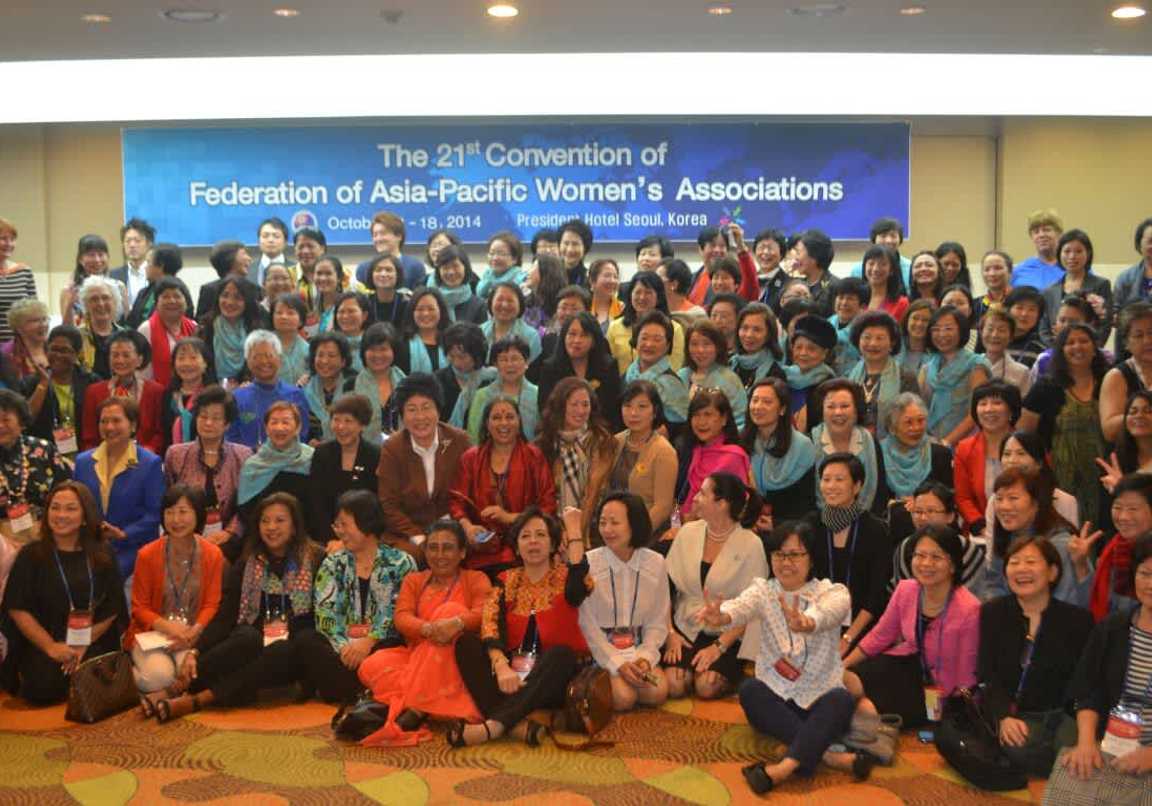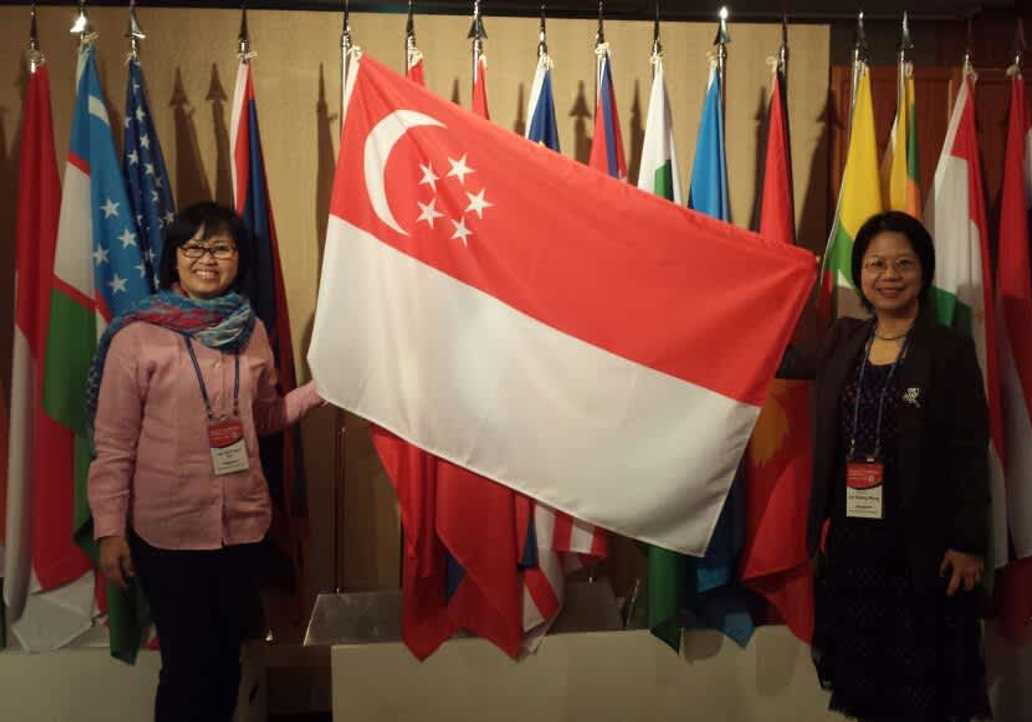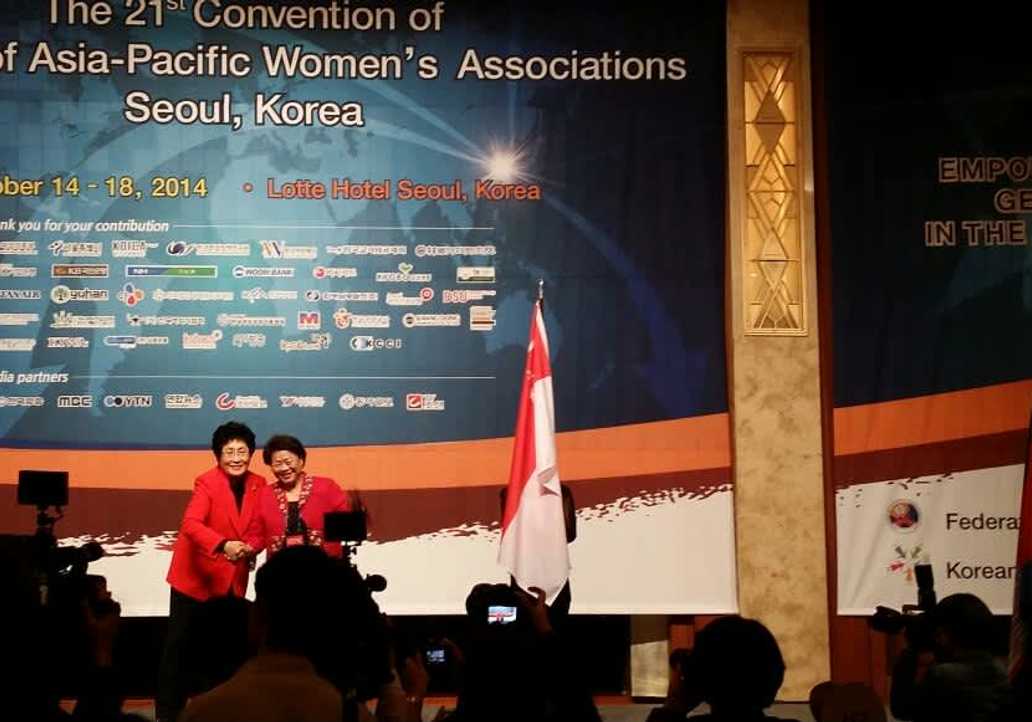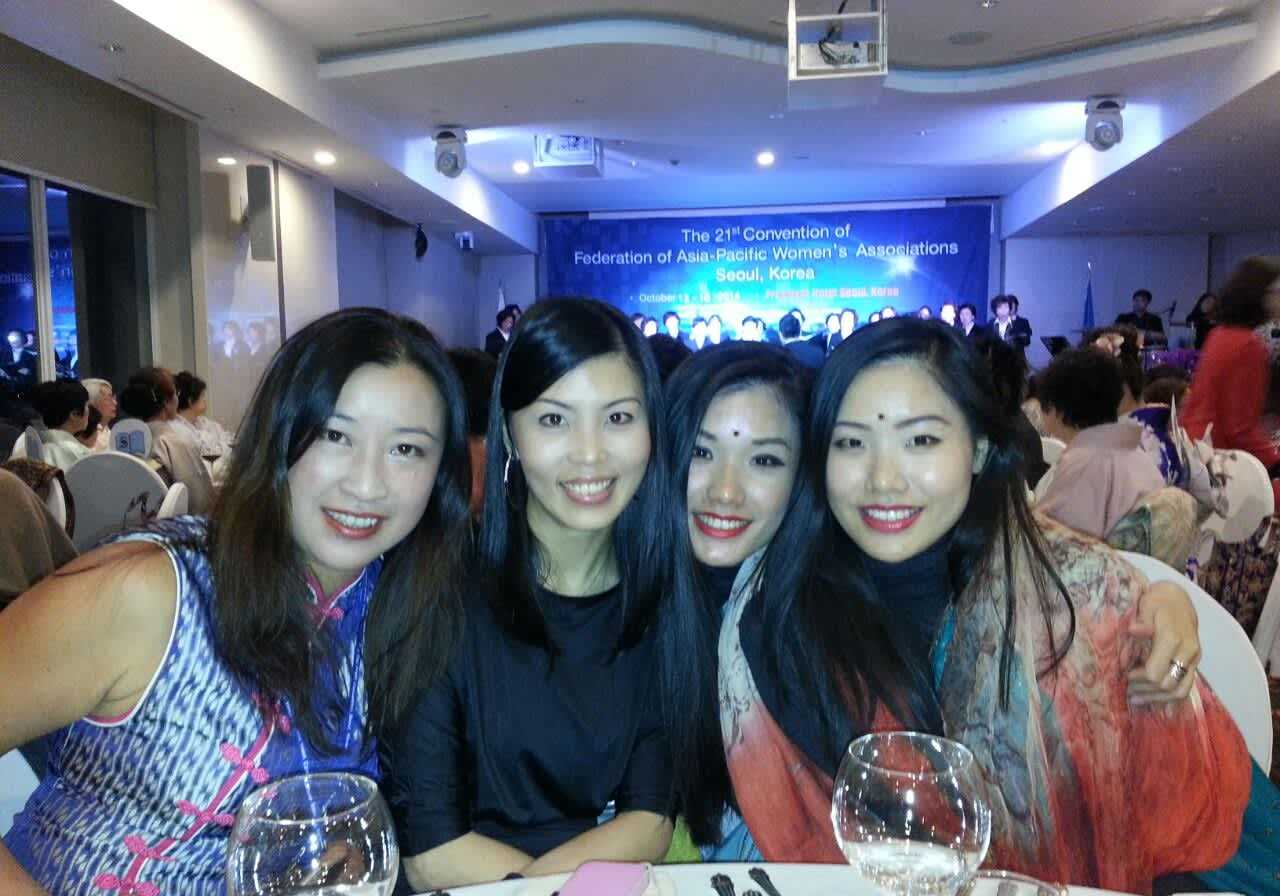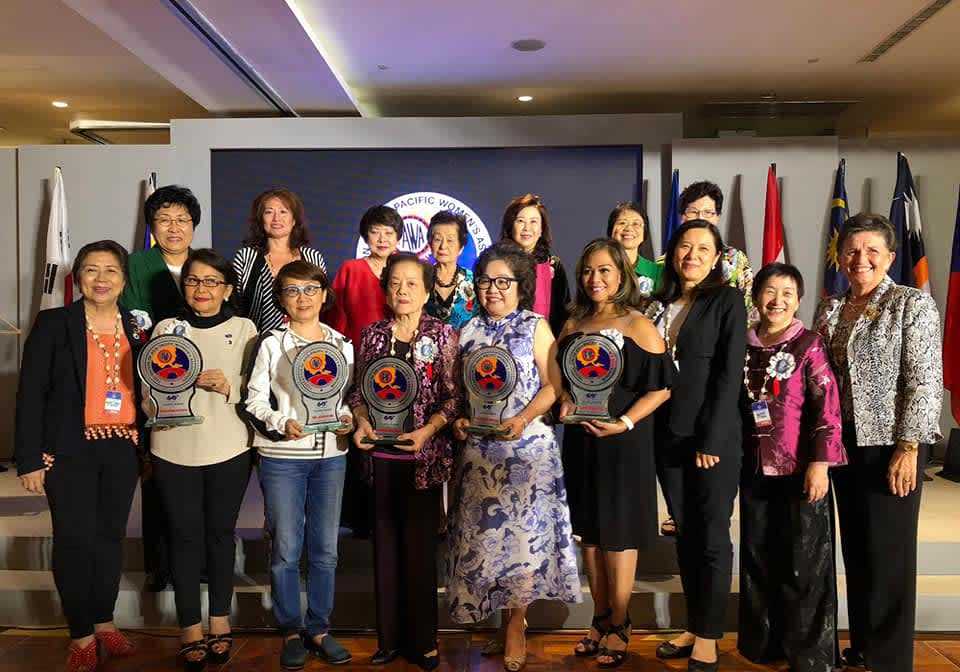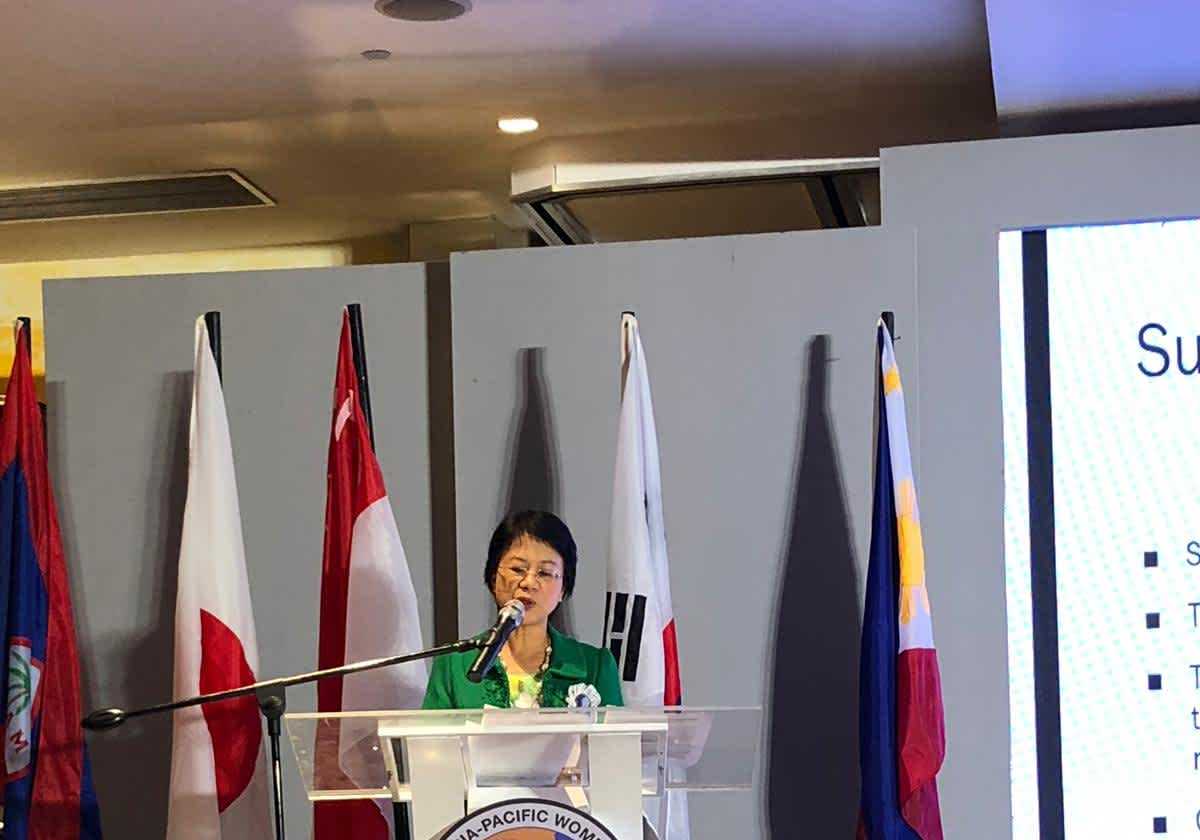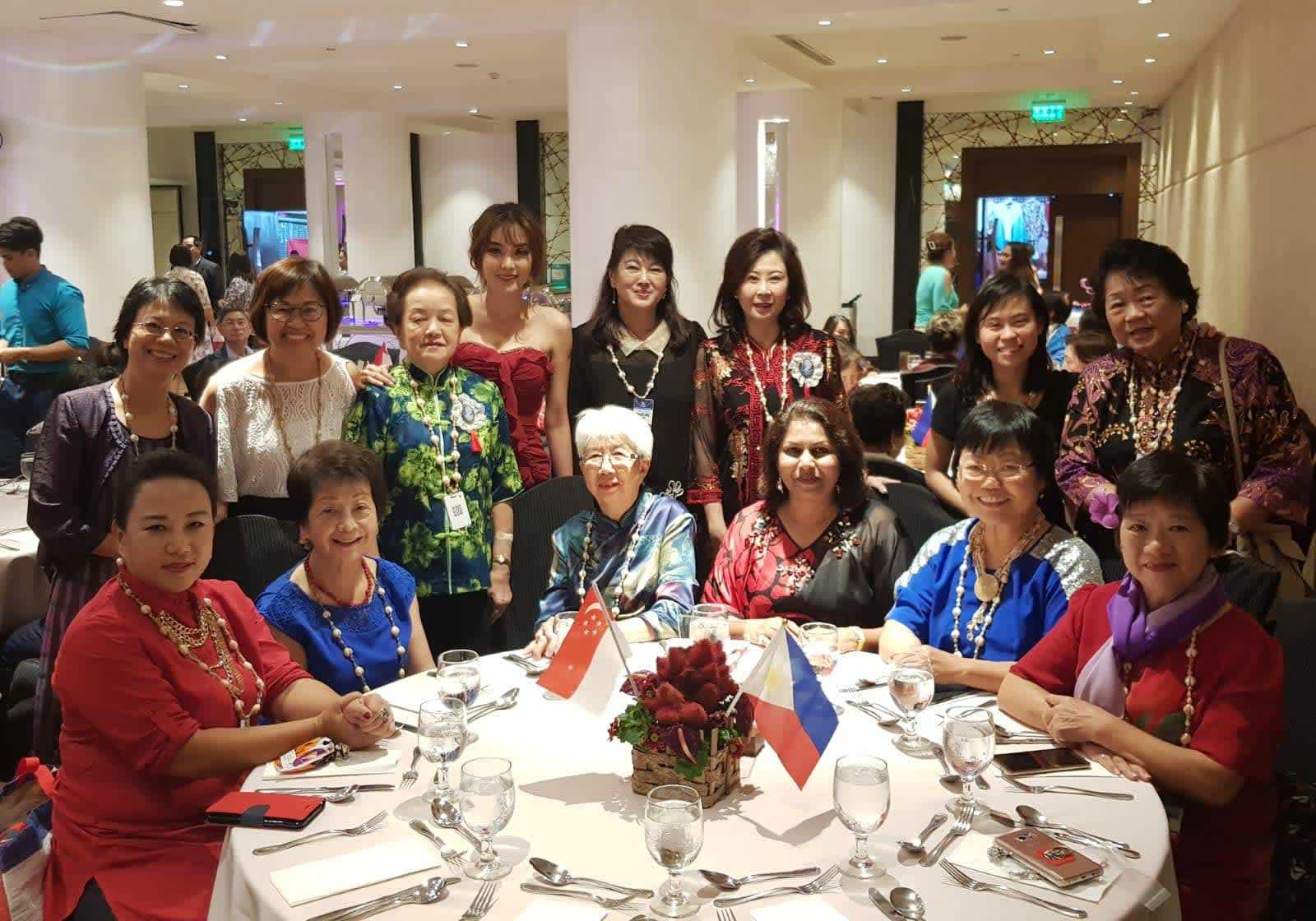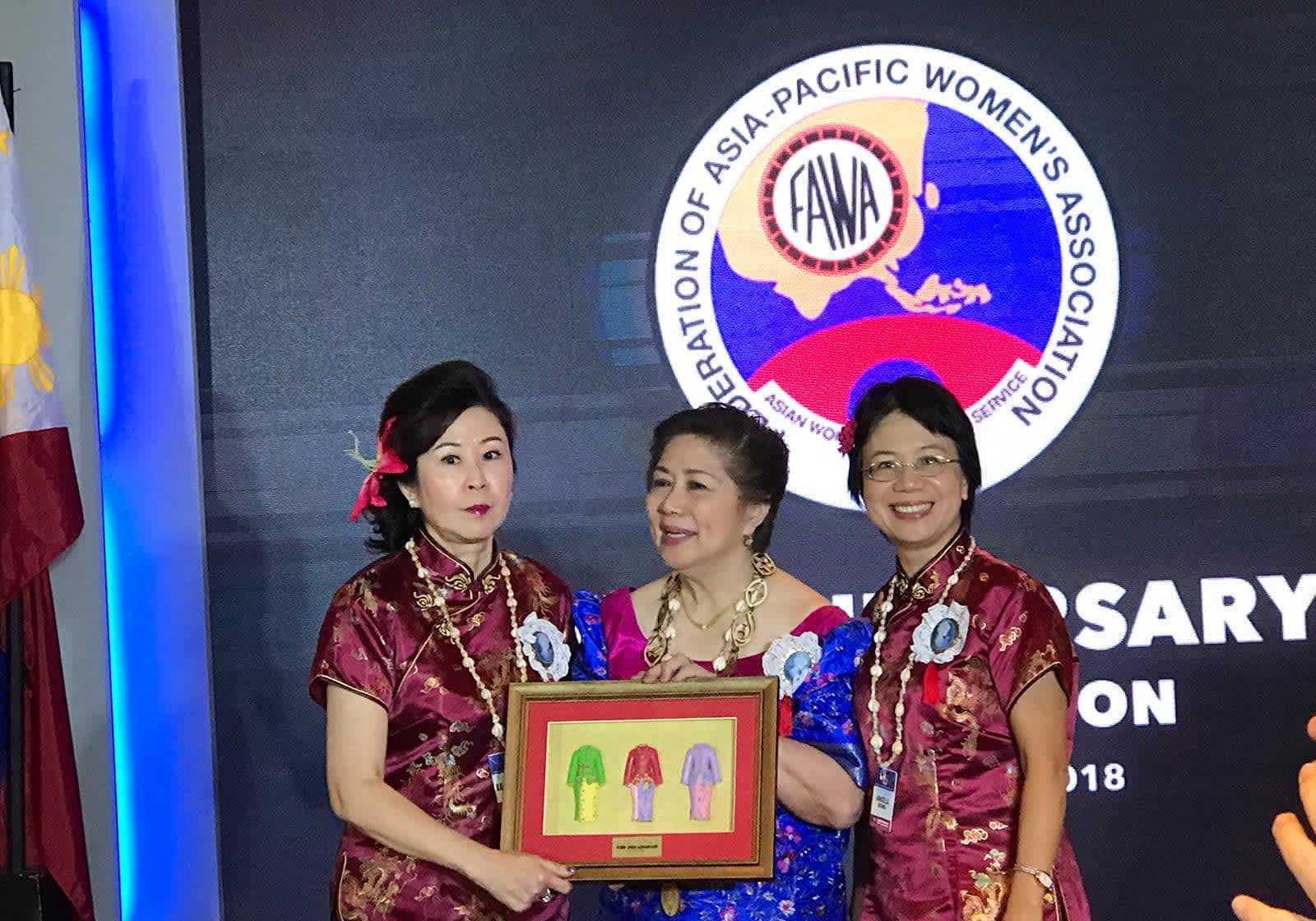Federation of Asia-Pacific Women’s Association (FAWA)
SWA hosted the biennial 22nd FAWA Convention in Singapore in 2016. FAWA conventions were held here in 2004 and 1986. The 23rd FAWA Convention was held in Sep 2018 in Manila, Philippines. The 24th FAWA Convention will be held in Sep 2023 in Tokyo, Japan.
The Federation of Asian Women’s Association was first conceived in 1952 by the late Geronima T. Pecson, one of the noted figures of the National Federation of Women’s Club (NFWC) of the Philippines. On June 19, 1958, she wrote a letter to Minerva G. Laudico, then the President of NFWC, urging the NFWC to undertake the unification of Asian women for the progress of Asia and the protection of the ideals of freedom and justice, contributing to world effort to building lasting peace.
Fully aware of the dangerous tension then building up in Asia, Mineva, with the unanimous support of the NFWC Board, undertook the organization of the initial convention. On February 23, 1959, 33 women groups in 15 countries were sent letters inviting Asian women leaders to meet coinciding with the 68th Convention of GFWC (General Federation of Women’s Club), which was to be held in Manila from June 20 to 26, 1959. In her letter, she proposed the organization of the Federation of Asian Women‘s Clubs “so as to affect not only closer relations but also more effective planning and execution of programmes for social welfare.”
With her second letter on May 19, 1959, Mrs Laudico sent with her invitation, a draft list of objectives, a suggested structure, a draft program of action and a draft constitution.
The Meeting of the women leaders began formally on June 17, at 9.00 am at the Little Theatre of the Arellano University. With the documents for discussions sent in advance, and considering the capacity of the participants, the decision to organize the Federation of Asian Women’s Associations was decided in no time. The constitution was approved and the following were declared the Chartered Members:
- Myanmar (Burma) - Union of Burma Council of Women's Association
- Guam - Guam Women's Club
- Laos - Laos Women's Club
- Singapore - Singapore Women's Association (then known as Singapore Federation of Girls' Clubs)
- The Republic of China - Taipei International Women's Club, Chinese Women Anti-Aggression League and YWCA
- Thailand - Thai Culture Women's Club
- Vietnam - International Women's Association
- Philippines - National Federation of Women's Clubs
The Delegates of India, Japan and Korea joined the meeting later.
The founding members of FAWA were highly academically qualified political association leaders. What they accomplished during two days is a landmark in Asian history. FAWA was organized to effect major changes in the status of women. The aim was to create opportunities for women to get together and discuss problems, which affect Asian countries and communities and to try and find solutions to these problems. It was also to provide an opportunity for women to be exposed to and to better understand the various Asian cultures, traditions and ways of life that are different from their own.
The holding of periodic conventions and meetings in different member countries was decided for the purpose of strengthening mutual understanding and cooperation, rendering periodic reports, evaluating and improving and updating action programmes. The themes and proceedings of each convention reflect the issues of the times.
